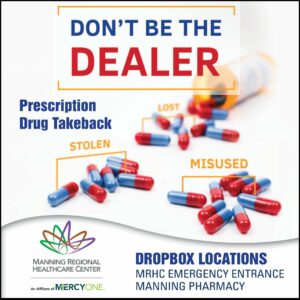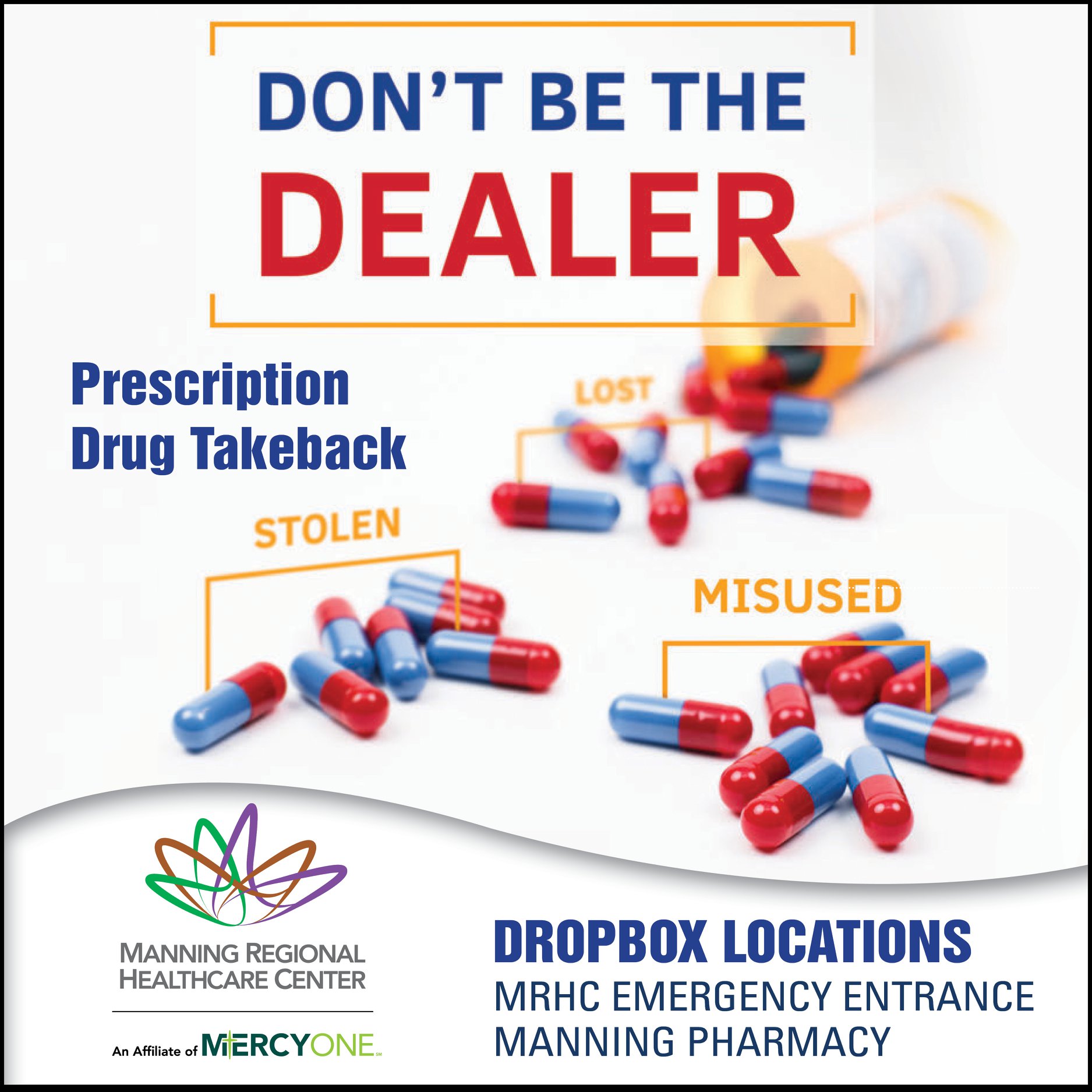Manning Regional Healthcare Center (MRHC) encourages everyone to go through their medicine cabinets while spring cleaning this year and take part in Prescription Drug Take Back Day on Saturday, April 30th.
While it may seem convenient to keep leftover medications “just in case” the next time you or a family member are sick, it can be very dangerous.
“Resist the temptation to go to your cabinet to take any leftover medication, especially antibiotics,” said Jen Morris, PharmD, Director of Pharmacy at MRHC. “A big concern with patients not finishing medications as prescribed is a fear of developing antibiotic resistance.”
What is Antibiotic Resistance?
- Antibiotic resistance occurs when bacteria develop the ability to defeat drugs designed to kill them. Illnesses once easily treatable with antibiotics can become untreatable, leading to dangerous infections.
- If a patient has a bacterial infection that warrants antibiotic treatment, it is vital they follow their prescription usage directions carefully.
- Finish the whole treatment of antibiotics, even if you are feeling better, because infections can come back even worse than before if you don’t finish antibiotics.
- Never use leftover antibiotics to self-treat family members with similar symptoms. Taking leftover antibiotics for a new illness increases your risk of having side effects, making you sicker, or causing a reaction.
Not taking the correct doses of prescribed antibiotics and saving leftover pain pills has evolved from a public health issue to a public safety concern. Research from the National Survey on Drug Use and Health shows that most misused and abused prescription drugs are obtained from family and friends, including medication being stolen from home medicine cabinets.
According to the United States Drug Enforcement Administration (DEA), the drug overdose epidemic in the United States is a public health, public safety, and national security threat. The DEA’s Take Back Day encourages safe, convenient, and responsible means of disposing prescription drugs to help prevent medication misuse and opioid addiction.
Medication Disposal Options
Morris notes that residents have two options available year-round to dispose of unused prescriptions – not just on April 30. 
“We have a medication drop box located at the Emergency Department entrance at the hospital and the Manning Pharmacy houses a destruction box uptown as well,” shared Morris. “Residents can discreetly take their leftover medications to these boxes and make sure unused prescriptions are securely destroyed without posing environmental threats.”
Both sites can accept small amounts of liquids, pills, patches, creams, and inhalers. However, needles, sharps, and illegal substances are not allowed. Morris notes that common methods for disposing of unused medicines—flushing them down the toilet or throwing them in the trash—are potential safety and health hazards and are not advised.
For more information about what to do with expired medications, please call MRHC at (712) 655-2072. If you or a family member has concerns about prescription drug abuse, please call the Recovery Center at (712) 655-2300.
